Blade Runner 2049
 for violence, some sexuality, nudity and language.
for violence, some sexuality, nudity and language.
Reviewed by: Raphael Vera
CONTRIBUTOR
| Moral Rating: | Very Offensive! |
| Moviemaking Quality: |
|
| Primary Audience: | Adults |
| Genre: | Sci-Fi Thriller Sequel 3D IMAX |
| Length: | 2 hr. 43 min. |
| Year of Release: | 2017 |
| USA Release: |
October 6, 2017 (wide—4,058 theaters) DVD: January 16, 2018 |
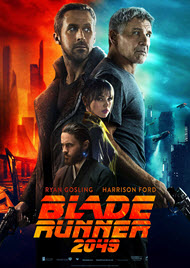


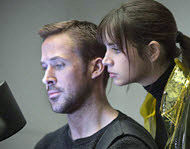
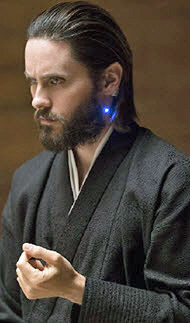
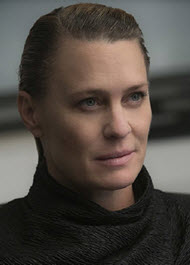
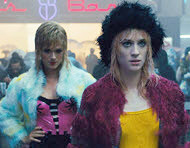
What does God says about PERVERSITY? Answer
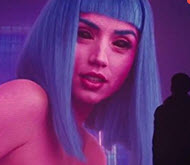
Evidence of widespread sexual lust in society / What is LASCIVIOUSNESS? Answer

FILM VIOLENCE—How does viewing violence in movies affect families? Answer
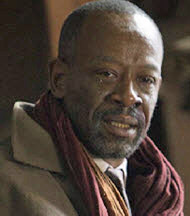
Loneliness

THE FEAR OF THE LORD—What is it? Why is it exceedingly important? Answer
Mocking the Creator of life and the universe
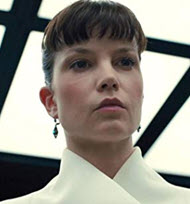

| Featuring |
|---|
|
Ryan Gosling … 'K' Harrison Ford … Rick Deckard Edward James Olmos … Gaff Jared Leto … Niander Wallace Robin Wright … Lieutenant Joshi Dave Bautista … Sapper Morton Ana de Armas … Joi Mackenzie Davis … Mariette Lennie James … Mister Cotton See all » |
| Director |
| Denis Villeneuve — “Sicario,” “Prisoners” |
| Producer |
|
Yale Badik Dana Belcastro See all » |
| Distributor |
a bleak and depraved world where high-tech fuels even greater spiritual darkness, immorality, perversity, and violence
In the near future, mankind has come to rely on lifelike androids—replicants—to perform the more dangerous and undesirable tasks that humans would rather avoid. In the original 1982 film, “Blade Runner” which was set in 2019, Officer Rick Deckard (Harrison Ford) was given the job of hunting down 6 rogue replicants that had gone on a killing spree. In the course of that film, he eventually came to feel something more for one replicant in particular and an otherwise bleak film ended on a somewhat positive note.
Now, 30-years later, replicants have been fully integrated into society. Blade Runners still exist to run down older, rogue models that are in hiding, and the force now even employs a replicant, “K” (Ryan Gosling), to track them down. Officer K finds and defeats one at the outset of the film, only to discover a person’s bones hidden on the replicant’s property.
The examined remains suggest that a replicant may have actually given birth, although that should be patently impossible. If a replicant is able to get pregnant should they now consider them human? And whatever happened to the child? This discovery is a threat to society that must remain hidden and so Lieutenant Joshi (Robin Wright) assigns K the job of finding and destroying the replicant child.
Niander Wallace (Jared Leto), the robotics genius who took over the replicant business after the previous owner was killed, shares a vested interest in finding the child—not destroying it—and so he tasks a female replicant, Luv (Sylvia Hoeks), to keep tabs on Officer K, assist when possible and kill whoever gets in the way.
None of this is known by Officer K, who ‘lives’ a quiet life in his downtime with his holographic companion Joi (Ana de Armas), who he interacts with as though she is a real confidant and girlfriend, the main difference being that they cannot touch. Together, they set out to find the child, but, as to what Officer K will do if that day comes, even he is not sure.
“Blade Runner 2049” is as visually stunning as its predecessor and, in homage, mimics much of the style and tone of the original. This is not necessarily a good thing. What sets this sequel apart is how it undertakes an even deeper dive into a society that has elevated perversity into the norm, while taking a hard look at the implications of procreating replicants. I respect the script’s bent towards real science fiction, and, make no mistake, that’s what “Blade Runner 2049” is, but it is a shame that the director chose to frame the narrative within some very unsavory themes, visuals and gruesome violence.
Objectionable content
Violence: Extreme. People are shot and killed, sometimes through the head, covered or crushed by debris, bombed by missiles, stabbed, a person’s hand is tortuously crushed with glass, a spine is broken over a man’s knee, and in one of the more grisly scenes a ‘newborn’ android, in the form of a nude adult female, is maliciously sliced open by Wallace and bleeds to death.
Disturbing imagery, along the same lines, include removed eyeballs, bloody bodies, and skeletal remains. The replicant Luv’s actions are as brutal as they are quick and, in one instance, she shoots someone in the head without a second’s hesitation when she senses Wallace’s displeasure. Later a character is held under water until fully drowned.
Additionally, the violence is often perpetrated so quickly that the audience does not have time to turn away. The extremely violent content is not appropriate for adults, let alone teens.
Sex/Nudity: Very Heavy. Nudity and sexual imagery is prevalent throughout the film. Officer K is in the shower and nudity is implied but not seen, and although Joi is a hologram, she changes what she wears to please K, and her clothing ranges from demure housewife to casual lingerie wear. However, as Joi is also a best-selling, popular hologram companion, one can see building-sized versions of Joi fully nude projected in the streets in order to entice prospective buyers. Replicant prostitutes openly work the crowds looking for business, and when walking through one of their operations the sounds of sex are clearly heard, and one can see gyrating silhouettes behind frosted glass walls. Naked inactive androids, including frontal male nudity, are seen within glass enclosures and bizarrely oversized statues of naked women in various poses occupy the landscape of an abandoned city.
Lastly, K’s holographic girlfriend Joi hires a replicant prostitute in order to finally have sex with Officer K, and she does so by overlaying her programming (or syncing) with the replicant. Although the sex act is not shown, the implication and lead up is still there—and confirmed when she wakes up naked in his bed. Very inappropriate sexual themes and foully presented nudity throughout make this highly unsuitable for teens and not at all edifying for adults.
There is also subtle political gamesmanship present in this film that bears mentioning. An often promoted message in today’s media is that substitutes for God’s ordained plan are often better than the original. We have heard in the media how a Gay person is more a ‘man’ than most, or how a transgender ‘woman,’ in reality a man with gender dysphoria, is likewise “more woman than the rest” and who can escape the promulgation of the conjoined words ‘Gay’ with ‘marriage.’ This is no accidental turn of phrase, and the supposition continues here when a character says that the replicants are becoming “more human than humans.”
Language: Heavy. Due to long visual stretches throughout, the film is light on dialog, so when foul language is used it makes a stronger and more profound impact. The Lord’s name is taken in vain once by the hero (G**d**n). While curses ranged from the f-word (7), sh** (3, including bullsh*t), “What the h*ll,” bast*** (1) and a euphemism for male genitals (pr***) is used once. The bulk of the curses come from the humans. Officer K himself does not curse at all, until his quest for the child takes an emotional turn almost suggesting that to be more human one must be profane.
Lessons
Most films will have characters that audiences can either despise or applaud, based on traits that have been given to us through Holy Scripture. “Blade Runner 2049” is no exception and has several examples that can be held up for biblical analysis including: modesty, fornication and idolatry.
Modesty—The film’s pervasive sexual immorality, lust and nudity falls far short of God’s desire for us to live holy lives unto our Creator.
“Likewise also that women should adorn themselves in respectable apparel, with modesty and self-control…” —1 Timothy 2:9-10
Fornication—Aside from the near constant bombardment of ‘sex for sale’ on the streets, the film presents the use of a prostitute as a positive thing that will bring Joi and Officer K together. The Word of God could not be any clearer on this subject.
“For the lips of a forbidden woman drip honey, and her speech is smoother than oil, but in the end she is bitter as wormwood, sharp as a two-edged sword. Her feet go down to death; her steps follow the path to Sheol…” —Proverbs 5:3-5
“For this is the will of God, your sanctification: that you abstain from sexual immorality; that each one of you know how to control his own body in holiness and honor…” —1 Thessalonians 4:3-4
Idolatry—Niander Wallace has assumed the place of God when he speaks of ‘making angels,’ or creating replicants that can one day reproduce. A replicant likewise refers to the miracle of childbirth when it is a man-made one (replicant). One can also sense the director’s dark vision when Wallace suggests, “We can storm Eden and take it back,” via his creations, naturally. The Bible teaches that life originated by the Word of God, and it is He alone who deserves our worship.
“Then the Lord God formed the man of dust from the ground and breathed into his nostrils the breath of life, and the man became a living creature.” —Genesis 2:7
“They changed the truth of God into a lie, and worshiped and served the creature more than the Creator…” —Romans 1:25
“Thus saith the LORD the King of Israel, and his redeemer the LORD of hosts; I [am] the first, and I [am] the last; and beside me [there is] no God.” —Isaiah 44:6
Ryan Gosling (Officer K) does his stoic best in the title character, and, together with Ana de Armas (Joi), they are the primary engines propelling the story forward. Unfortunately, the sometimes tedious pacing and minimalist dialog detracts from an otherwise sometimes fascinating adventure.
The strength of “Blade Runner 2049” is that it’s an intriguing Science-Fiction tale, however, one that sadly includes a morass of depraved, godless and perverse characters, so much so that I cannot with conscience recommend this film on either a secular or spiritual level, the latter needing to be our primary concern lest our souls be scarred. How better the other choice that our Lord God wishes for us.
“Finally, brothers and sisters, whatever is true, whatever is noble, whatever is right, whatever is pure, whatever is lovely, whatever is admirable—if anything is excellent or praiseworthy—think about such things.” —Philippians 4:8
- Violence: Extreme
- Profanity/Vulgarity: Heavy
- Sex/Nudity: Very Heavy


To be clear, I would only recommend this for adults. The violence and sexual elements would not be appropriate for a minor. However, I didn’t feel that the movie was celebrating the perversity that it displays. In fact, the protagonist finds emptiness in these things, and he is only shown to discover fulfillment when he is striving to be more human in a self-sacrificing spirit—thus the film again lauds the Lord’s handiwork as superior to mankind’s human-like machines.
Moral rating: Offensive / Moviemaking quality: 4½
The violence is necessarily graphic, but never enjoys or revels in it. The sexual content is what has clearly put some people off, and it clearly isn’t suitable for people underage, but I think that what the director was showing was the emptiness of consumerism and criticising the attitude towards women held in society. One of the characters is a hologram who is programmed and exists solely to pleasure the main character, and the realisation of the emptiness of it is a heartbreakingly stark scene.
On a technical level it’s perfect, although the pacing might be a little too slow for some viewers. The performances are fantastic, the score is great and the cinematography is so beautiful that every frame could be a painting.
Moral rating: Better than Average / Moviemaking quality: 5
In one sequence, the film’s early focus on the new generation “Blade Runner” K gets an almost Biblical, “I must decrease so he can increase” quality as Harrison Ford suddenly appears as his old character 30 some years later. Like in old timers in the Star Wars sequels, Ford is mostly hiding out from the new conflict. K and Ford first meet, then fight and then drink.See all »
Moral rating: Average / Moviemaking quality: 4½
Moral rating: Good / Moviemaking quality: 4½
There was also a lot of violence. There were multiple stabbings, gouging, and a forced drowning. One of the characters makes some biblical references. The biblical references included the story of Rachel becoming pregnant and talk of angels. There was also discussion of people having souls and the replicants not having souls, since they were man-made.
I watch many science fiction and action films and felt that the movie fit in with the current science fiction action movies with great special effects and interesting story line.
Moral rating: Offensive / Moviemaking quality: 4½
Now, while I am glad it didn’t have much swearing, it did have some blood and violence. And the biggest issue of all was nudity. And by nudity I mean there had to be at least 5 or 6 times when you saw a woman’s breast and nipples showing fully in front of you. Just once maybe I can deal with it. But so many times really made it awkward. Also, there are statues, as with the first movie, of naked stone women in sexual looking positions. Including two that are essentially mimicking oral sex. They may be just statues, but its obvious what they are supposed to be doing. See all »
Moral rating: Very Offensive / Moviemaking quality: 5
From a Christian standpoint there is no redeeming value. The core of the film is about a synthetic human who hopes he is not synthetic and thus has a soul. The confounding part of this dilemma is the absence of what it means to have a soul. Violence is throughout, but there is an extremely disturbing scene in the film of a casual slaughter of a newly “birthed” synthetic by its creator-god. In this film the creator-god is man, and man creates his image in the synthetic humans. Man is evil, and synthetics are good. This tone is throughout the film. This same theme was throughout the original 1982 version as well.
It’s a fascinating journey of hopelessness from the point of view of a synthetic bond-slave but it will do its best to pull you away from Christ and back into the world.
As a Christian—stay away.
Moral rating: Very Offensive / Moviemaking quality: 5
PLEASE share your observations and insights to be posted here.



My Ratings: Moral rating: Offensive / Moviemaking quality: 4½